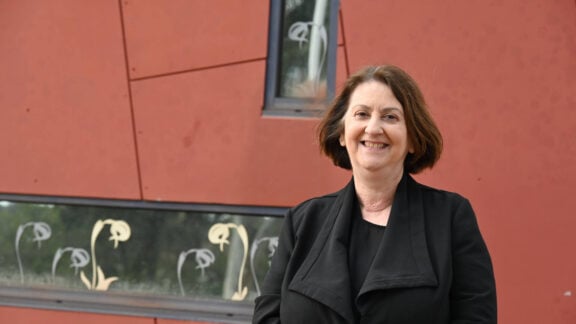A tree simply cannot grow without its roots, just as a cultural identity cannot grow without its adherents. As time moves forward and ties to Greece move further away, it is now time to call upon third and fourth generation Greek Australians to step up to the plate and, under the idea of Nikos Kazantzakis, ‘save’ the ‘circle’ of Greek culture for its sustenance in an Australian future.
Recent discussions surrounding the survival of Greek culture in the Australian diaspora have indicated that connections with cultural heritage are becoming increasingly difficult. Bill Papageorgiou, a 21-year-old student from Melbourne, believes that “in a modernised Australia, it is sometimes hard to connect with cultural traditions from another time and place”.
As the diaspora in Australia moves further from its ties to a physical Greece, 24-year-old student Steph Anna also believes that “things are considerably different for modern generations trying to sustain ties to Greek cultural heritage in Australia”. Furthermore, 21-year-old Elektra Sassoulaki believes modern generations “are not being shown that their physical distance from Greece is completely irrelevant to their connections to their Greek culture”.
There is no doubt that cultural circumstances for current generations are considerably different. In 2015, outlook perspectives on culture are very disparate compared with those of first generation migrant settlers, thus it is increasingly difficult to connect with traditional beliefs, values, traditions and a more traditional heritage.
So, what do you do if your existence in the diaspora means you are so far deep into the third generation that sometimes it feels hard to become connected with your heritage? When speaking Greek at home begins to dwindle away and life is so naturally overridden with Australian tendencies, that your heritage gets somewhat left behind?
Discussions with young Greek Australians have led to the conclusion that creating a sustainable future for the Greek Australian identity is all about re-situating cultural perspective to adhere to the modern tendencies of current and future generations. Many discussions were inclusive of the idea that Greek cultural heritage became more appealing at a university level, where students were exposed to contemporary sides of Greek culture. Explored below are contemporary Greek realms which can help modern generations connect with their culture.
Contemporary Greek Film: Film is one of the most interesting ways to expose oneself to the many facets which comprise Greek culture. Ultimately, Greek films stand as a theatrical allegory for critiquing and presenting to the audience Greek culture as a whole.
In contemporary Australia, The Greek Film Festival runs annually in the cities of Melbourne, Sydney, Brisbane, Canberra and Perth. Films in the festival range from comedy to pseudo-documentaries, romances and historical films, which all cast their light of differing perspective on Greek culture. The festival is one of the most contemporary ways to engage oneself with Greece from afar. The films are also accompanied by English subtitles.
Recommended films: Wasted Youth, Soul Kitchen, What if.
Contemporary Greek literature: Literature provides an insightful view into themes which commonly surround the notion of Greek identity. Reading is one of the simplest ways to learn about Greece, Greek culture and other Greek diasporas, and modern literature does so in an interesting and contemporarily engaging way. Begin by delving into the works of some of Greece’s most prominent contemporary authors, who also have their works translated into English. Read the English version and then try your hand at the Greek, either way you are still exposing yourself to notions of Greek heritage in a modern format.
Recommended authors: Nikos Kazantzakis, Odysseus Elytis.
Contemporary Greek Australian arts: Whilst you may not know it, Greek Australians play a prominent role across many fields of contemporary art, all providing their own Greek touch to Australian artistic realms. Checking out these artists, curators and prominent figures can help you understand that Greek culture is indeed present in the contemporary state of Australia and can help you tie the two identities.
Greek Australian art figures: Michael Zavros (art), Barry Keldoulis (curator), Ben Fuog (art), Gina Kalabishis (art), Napoleon Perdis (makeup), Alex Perry (fashion), Olympia Valance (acting).
Contemporary Greek music events: There is no doubt about the passion of Greek music, and delving into the depths of this realm is something that will have you more than passionate about Greece. Engaging with modern Greek music means many things. Not only can you engage in Greek concerts, gigs and club events when the time comes around, but this is the perfect way to have fun with your culture and others who share your culture.
Contemporary Greek artists: Antonis Remos, Anna Vissi, Mihalis Hatzigiannis, Sakis Rouvas and C-Real.
Contemporary Greek Australian artists: Sienna Wild; a young, modern, fiery indie rock band!
Contemporary club events: Kinisi (a host to constant Greek nights and gigs), university organised events through NUGAS and individual university Greek clubs. The Neos Kosmos weekly community guides on page 22 are also the perfect place to find out which Greek music events are on in Australia.
For Greek Australian student Anna, the sustainable future of Greek culture in Australia is extremely important because it connects her to everything she knows. “It connects me to my grandparents, our religion, our history and our country. Losing my cultural heritage would be like losing a part of me, it would be forgetting where I came from and the struggles my grandparents went through to get me here.” For Bill, “the maintenance of Greek Australian heritage is owed to the past, to the present and to the future life of Hellas”.
No matter which way we look at the Greek diaspora, sustaining our culture is the only way into the future. So it is now time for modern generations to delve into the passion of their contemporary culture, to experience not only one of the most blessed feelings in the world, but to plant firm roots that will help our culture grow as strong and as vital as ever, and ‘save’ its presence in the far future.







